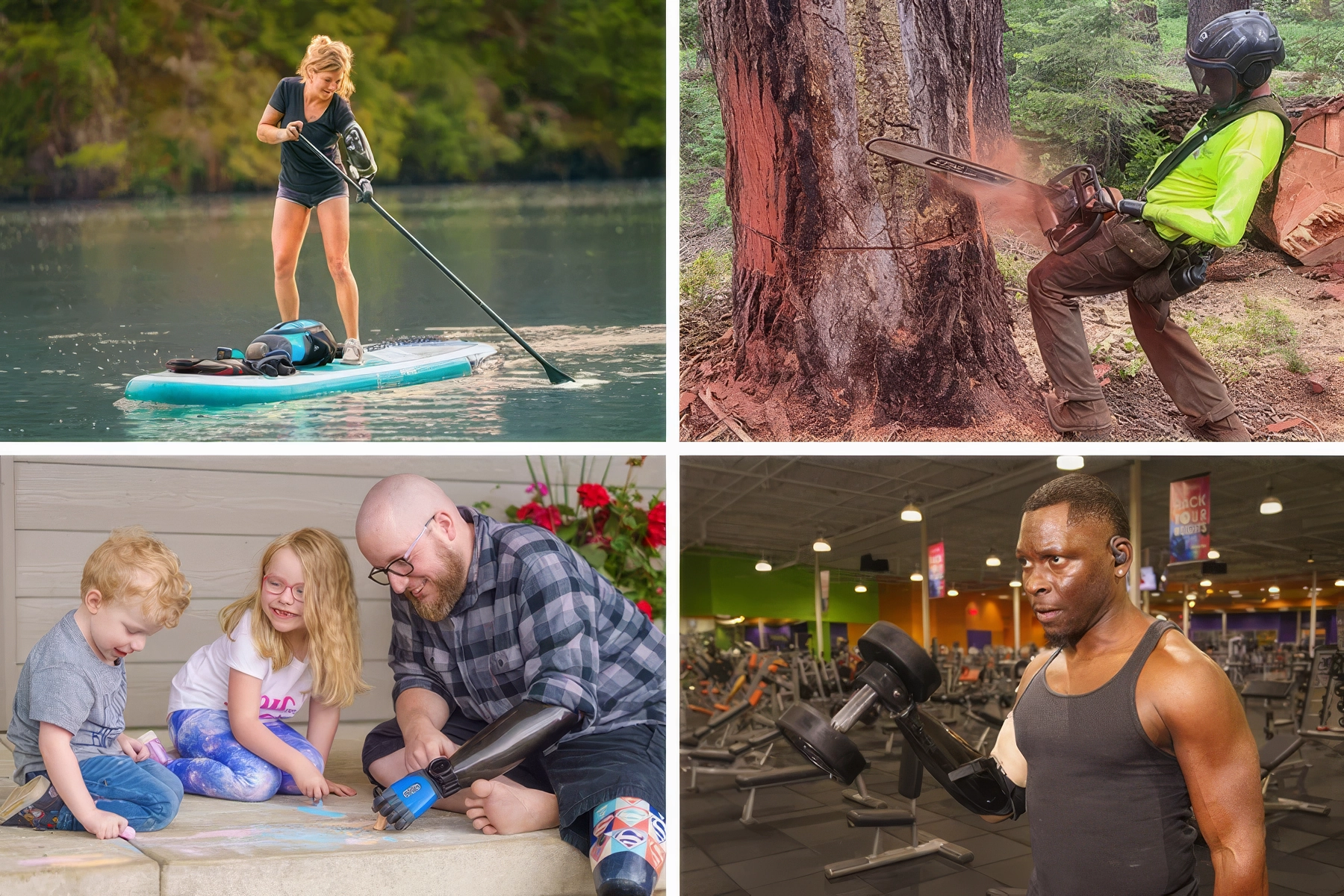In 2018, Deb’s husband John was at work in a meat factory when he sustained a crush injury due to a malfunctioning meat grinder. After his transradial, or below-elbow, amputation, John found himself at home for two years and was starting to look for work right when the pandemic hit. Always an out-of-the-box thinker, John decided to purchase chickens so the couple could sell eggs. This was during the time when egg prices were sky high, and while it was lucrative, it was also difficult, and it still is! “We live in the city!” Deb laughed while telling our Arm Dynamics team member about it during a phone interview. The couple lives in Beaumont, Texas, but they’ve found a way to make their mini-farm work, even with John back at work now doing clean up at construction sites.
We wanted to speak with Deb because spouses often get overlooked after the injury of their partner. Deb herself said, “I’ve never had anyone ask me about how things are going on my end.”
When someone’s spouse has an injury, they need to become many things: a coordinator of care, a caregiver, an advocate. For Deb, she had to advocate for John right off the bat. “Our first case manager began making decisions we didn’t appreciate, like canceling John’s doctor’s appointments because she felt he was doing okay. I told her, ‘You need to get on the phone and restore that appointment right now.’” After they switched case managers, things got a little easier, though Deb still had to push for John to receive multiple devices. While John mostly uses his body-powered hook for work and to tend the chickens, he also has a myoelectric bebionic hand. “We do love Scott and his team at the Arm Dynamics center in Houston, they’ve always been great with John’s fittings.”
“Since we’re two hours outside of Houston, I did my best to schedule all John’s appointments in Houston on the same day. We were driving there like twice a week, and I was starting to lose track of my days. It was physically wearing me out.” Friends and acquaintances were polite and nice about what Deb and John were going through, but not necessarily supportive. “People would ask me how I was doing, but they didn’t really want to hear the details. So, I didn’t tell them. And I didn’t really want to talk to my husband about it. He was already dealing with enough, and I didn’t want him stressing about my feelings.”
Deb found a lot of support in her faith in God. “I pray a lot, and John does, too. Our faith — that’s what took us through. It was difficult, but we just kept moving.” The church she and John attend was also helpful. “Our old Sunday school teacher, Ed, who we dearly love — he’s retired. He would come in and check on John a couple of times a week, just to talk. They used to meet at a restaurant and play chess. Ed is now his 80’s, but when they would go to the restaurant, John would call me and say, ‘Hey, I’m here with Ed.’ And Ed would tell me ‘I’m gonna kick his butt, Deborah,’ and I’d say, 'No, he’s gonna kick your butt, Ed.’ And we would just laugh and laugh.”
Ed provided a lot to John — and Deb — by giving John a reason to get out of the house in the months following his amputation and providing such good company. “Ed even took John on hospital visits and set up speaking engagements for John. Ed was a big part of our healing process.”
Deb and John have been through a lot. It took a while, but now John is happy with his current job. “My husband — he’s amazing. We were married in 2016, so, to have an accident like this after two years of marriage … it’s been a lot.”
Some of what Deb addressed above — the difficulties of going through an amputation — are addressed in our Wellness Inventory, a patient screening tool we use to help identify emotional challenges and promote self-awareness. This is administered by our clinical therapy specialists, who are not only there to support their patients but teach them how to use their prosthetic devices.
Deb finished her interview with us by giving a piece of advice for anyone going through the recovery of their spouses’ amputation: “Be patient. Be patient with your partner and be patient with yourself. You’ll get through it.”
If you or someone you know is in need of prosthetic care following an amputation, please contact us to see if we can help provide that for them. If you’d like to leave a comment or let Deb know how her story helped you, please do so below. Thank you so much to Deb for speaking with us and telling us how her and John got to the better place they are now.
For more information about how vital caregivers are, please see this article in the OP Edge: Caregivers Are Key to Recovery, Success for Individuals After Amputaiton.





%20President%20and%20Senior%20Clinical%20Director.jpg?width=600&height=600&name=John%20M.%20Miguelez%2c%20CP%2c%20FAAOP(D)%20President%20and%20Senior%20Clinical%20Director.jpg)










Comments (1)